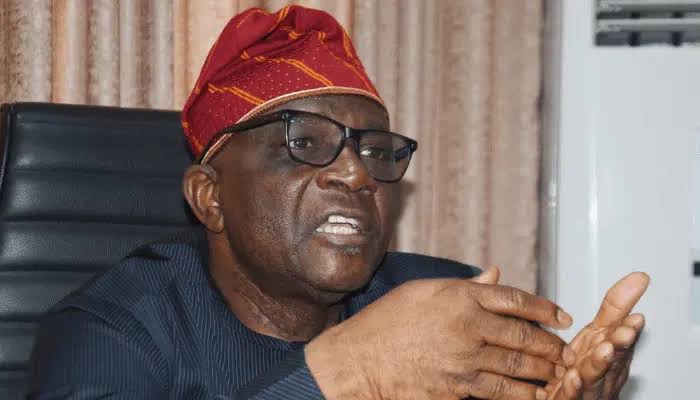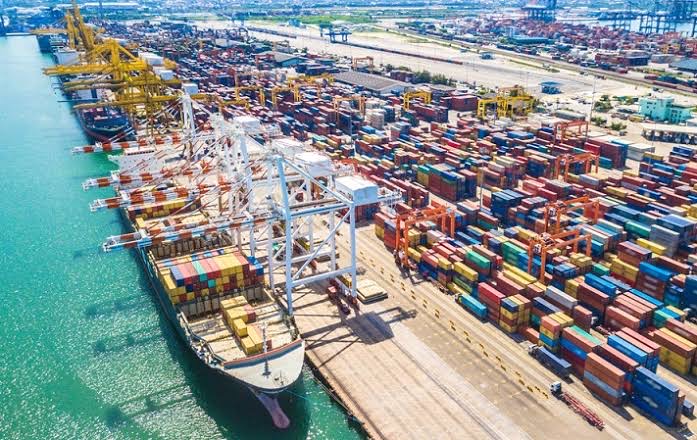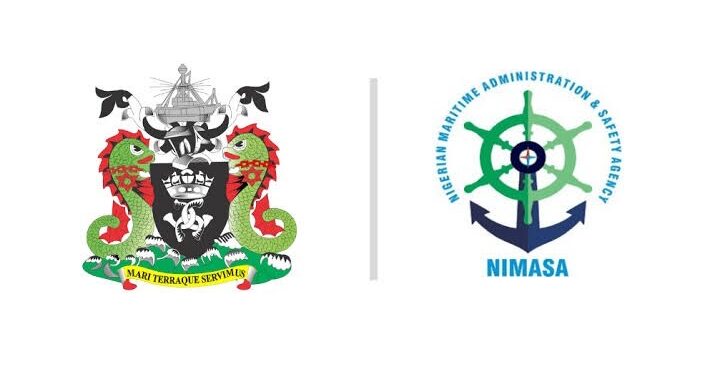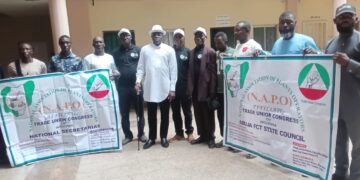The federal government is advancing a significant policy change aimed at the Nigerian Maritime Administration and Safety Agency (NIMASA) and the Nigerian Port Authority (NPA).
This new proposal seeks to shift the mode of collecting charges, fees, levies, and fines from foreign currencies, specifically the U.S. Dollar, to the Naira, Nigeria’s local currency.
This initiative is part of a broader economic stabilization effort and is embedded within a bill that President Bola Tinubu is set to present before the National Assembly (NASS).
Bayo Onanuga, the Special Adviser to the President on Information and Strategy, revealed this proposal during a briefing held at the State House in Abuja.

He emphasized that the move is central to the federal government’s strategy to prioritize the use of the Naira over foreign currencies in key sectors of the economy, particularly in areas that generate significant revenue like maritime operations.
Also read: FG to Revive Toll Gates to Fund Road Maintenance and Security
The overarching goal of the policy is to alleviate the intense pressure on Nigeria’s foreign exchange market, which has experienced tremendous volatility in recent years.
Onanuga further clarified the government’s intent, stating, “The second one has to do with the operating laws guiding NIMASA and the Nigerian Port Authority (NPA). The amendment under that in the economic stabilization bills is that all their fees, charges, levies, fines, and other monies accruing to them and payable to those agencies will now be paid in Naira at the applicable exchange rate.”
He explained that these agencies, which have historically charged fees and levies in U.S. Dollars, will now conduct transactions exclusively in Naira. This shift is designed to help de-dollarize the Nigerian economy, a goal that the government sees as vital to stabilizing the nation’s currency and shielding the economy from the unpredictability of foreign exchange rates.
Prior to this proposal, both NIMASA and the NPA charged companies and stakeholders in U.S. Dollars, aligning with the global standard for maritime services. However, the government’s new directive seeks to emphasize the use of the Naira, which it hopes will lessen the country’s dependency on foreign currencies and curb the broader trend of “dollarization” within the Nigerian economy.
This policy change is part of a larger plan by the federal government to decouple the Nigerian economy from the volatility of the foreign exchange market, especially in relation to the Naira’s exchange rate against the U.S. Dollar.

By encouraging the use of Naira in key sectors like maritime services, the government hopes to reduce the demand for foreign currency, particularly within industries that generate considerable revenue. In doing so, the government aims to relieve the ongoing pressure on Nigeria’s foreign exchange reserves, ensuring greater stability in the forex market.
Another initiative that aligns with this effort is the federal government’s recent approval for the Nigerian National Petroleum Company Limited (NNPC) to sell crude oil to local refineries, such as the Dangote Refinery, in Naira rather than in U.S. Dollars.
This is a significant departure from the long-standing global practice of trading international commodities like crude oil in foreign currencies. The move underscores the government’s commitment to using the Naira in major financial transactions and reducing the country’s reliance on foreign currencies in vital sectors of the economy.
The urgency of this shift becomes even more apparent when considering the Naira’s tumultuous performance in the foreign exchange market over the past 14 months.
Following the unification of the foreign exchange market in June 2023, the Naira initially stabilized at around N750 to the U.S. Dollar. However, by the end of that year, the exchange rate had fallen to N907/$, reflecting the currency’s ongoing struggles.
In 2024, the Naira’s volatility continued, with the currency experiencing dramatic fluctuations. Between February and March, the Naira was one of the worst-performing currencies globally, exacerbating concerns over Nigeria’s economic stability.
However, in a surprising turnaround, by April 2024, the Naira briefly became the world’s best-performing currency, giving rise to optimism about its potential recovery. Unfortunately, this momentum did not last. By mid-2024, the Naira had resumed its downward slide, depreciating significantly and nearing a rate of N1,600 to the U.S. Dollar.
This period of intense volatility in the Naira’s value has had profound effects on Nigeria’s economy, driving inflation, increasing the cost of imports, and exerting pressure on businesses that rely on foreign exchange. As a result, the federal government is now taking aggressive steps to stabilize the currency by implementing measures such as the proposed NIMASA and NPA reforms, which seek to promote the use of Naira over foreign currencies in key sectors.
Through these efforts, the government hopes to protect the Naira from further devaluation and restore confidence in Nigeria’s local currency. By reducing the demand for foreign exchange, particularly within high-revenue sectors like the maritime industry and petroleum exports, the administration aims to foster greater stability in the country’s financial markets.
Ultimately, the success of these policies will hinge on the federal government’s ability to effectively implement the proposed reforms and ensure that stakeholders within these industries adapt to the new requirements of conducting business in Naira.
In conclusion, the federal government’s proposal for NIMASA and NPA to collect their fees and charges in Naira rather than foreign currencies is a strategic move designed to stabilize Nigeria’s economy, reduce the pressure on the foreign exchange market, and promote the broader use of the Naira in high-revenue sectors.
This initiative, along with similar measures being implemented in the oil industry, represents a concerted effort to de-dollarize the Nigerian economy and ensure long-term financial stability amidst ongoing challenges.

































